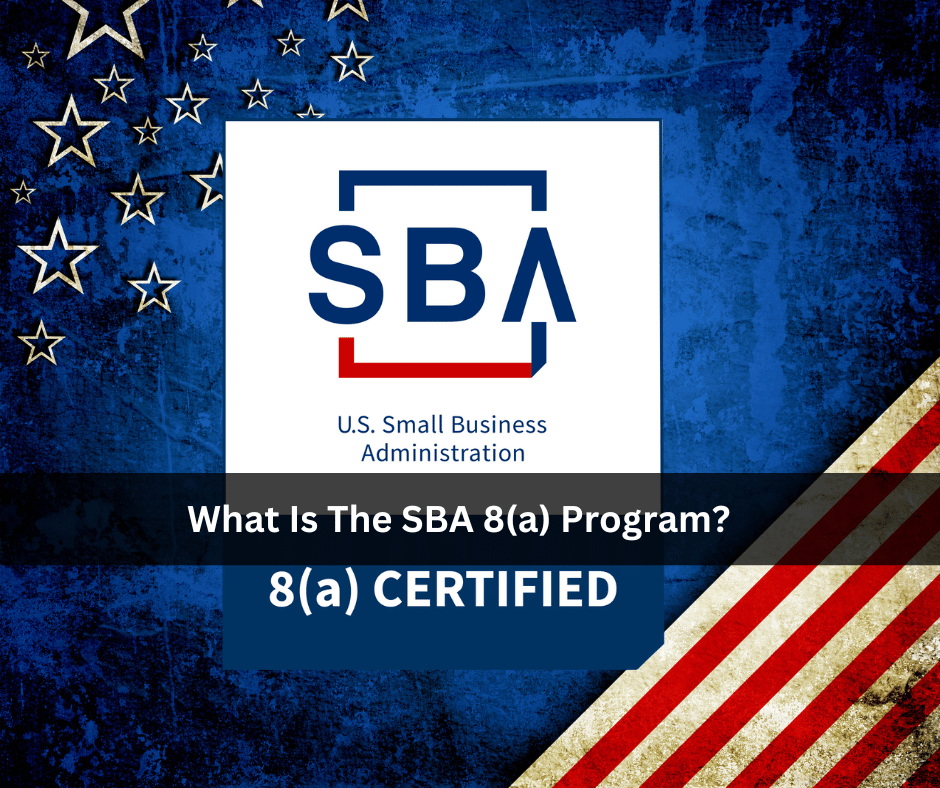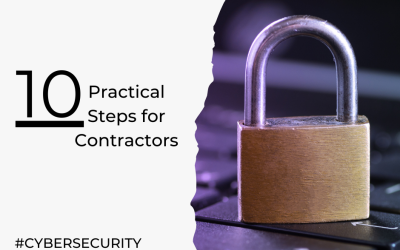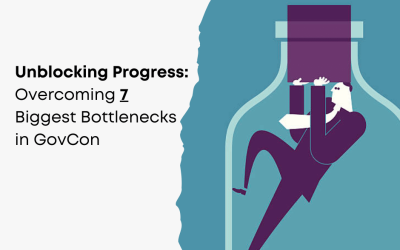The 8(a) Business Development Program helps small businesses grow by providing training and technical assistance so they can better compete in the private market. Firms enrolled benefit from federal contracting preferences such as set-aside and sole-source awards, allowing them to build capacity before leaving the program with a strong foundation for success in an open commercial landscape.
In Fiscal Year 2020 alone the federal contracts awarded to 8(a) firms amounted to a total of $34 billion – out of which $9.3B were from set aside awards while the rest were provided under sole source arrangements.
Who is eligible for the 8(a) program?
8(a) Program eligibility is generally limited to small businesses “unconditionally owned and controlled by one or more socially and economically disadvantaged individuals who are of good character and citizens of and residing in the United States” that demonstrate “potential for success.”
But what does this mean? Let’s break down the eligibility criteria in more detail below.
Business
Except for small agricultural cooperatives, a business must be a for-profit entity that has a place of work located in the United States and makes a significant contribution to the U.S. economy by paying taxes or using American products, materials, or labor. For 8(a) Program purposes, businesses can be individual proprietorships, partnerships, limited liability companies, corporations, joint ventures, associations, trusts, or cooperatives.
Small
A business is considered small if it’s independently owned and operated, holds no dominant place in its industry of operation, as well as meets any definitions or criteria set by the Administrator for Small Business Administration. These standards focus on the size of a given company; primarily taking into account factors such as the number of employees and average annual receipts. For instance, businesses participating in scheduled passenger air transportation are considered small when they have 1,500 or fewer staff members while data processing-oriented companies can be classified under this category provided their yearly revenue doesn’t exceed $32.5 million.
Unconditionally Owned and Controlled
To qualify as an 8(a) firm, the business must be majority-owned by one or more socially and economically disadvantaged individuals who are U.S. citizens; unless it is owned directly by a Native American tribe, ANC, NHO, or CDC. The ownership should not include any conditions that could transfer benefits of control to a third party entity nor involve voting trusts/restrictions on rights which limit its full control in the hands of those who meet these criteria – with no non-disadvantaged parties having authority within this structure either.
Furthermore, strategic policy setting and day-to-day management must be held in the hands of one or more socially and economically disadvantaged individuals — with some exceptions such as if the company is minority owned. Successful businesses require leadership that goes beyond mere ownership; it requires strong control over daily operations to build upon long-lasting success.
Economically Disadvantaged
To qualify as economically disadvantaged, individuals must fall within a specific financial range. Their net worth should be under $750k (excluding ownership interest in their business, stakes in the primary residence, and retirement accounts), with their average adjusted gross income for the three preceding years capped at $350K and assets not exceeding 6 million dollars.
Socially Disadvantaged Individual
Individuals who are members of groups that have faced prejudice or discrimination due to their identity may be considered socially disadvantaged. Those outside such designated groups must demonstrate they, too, meet the criteria for social disadvantage to qualify – including proof of an objective distinguishing feature towards the said group (e.g., race/ethnicity), personal experiences with chronic and substantial disadvantages present within American society as a whole, plus evidence demonstrating any negative impacts on the individual’s ability to enter into or advance within business circles.
Good Character
The SBA takes a hard look at the good character of applicants and participants for its 8(a) Program. This includes evaluating any criminal conduct, violations of regulations, government contract suspensions, or debarments possessed by managers/key employees as well as false information provided to the SBA knowingly.
Potential For Success
To qualify for the 8(a) program, a firm must typically have been in its main field of activity for two full years prior to application. However, there may be exception scenarios where applicants who haven’t met this milestone may still receive SBA approval with valid waivers.



